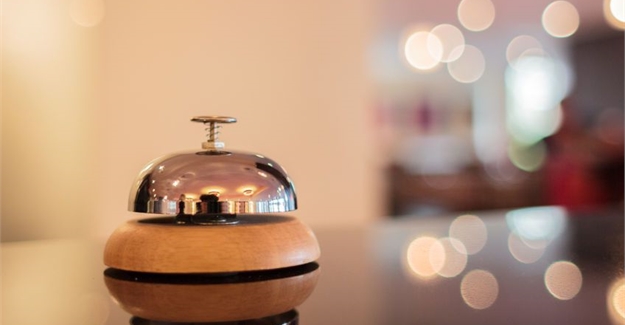
But if you’ve ever been checked into your hotel room at 2am or watched an unreasonable guest demand less sand on the beach, you’ll know that it takes a special breed of person to work in the tourism and hospitality industries.
For matriculants or parents of matriculants who are considering a career in the industry, the key ingredients appear to be passion, resilience and confidence, says Diederick Reinecke, campus manager: Dream Hotel School.
A challenging environment
“It’s certainly not everyone’s kettle of fish. The hours are long and the environment is difficult, so for many young people, working in the hospitality industry is very challenging. That’s why, when we select learners to join our programmes, we look for individuals who have passion and want to progress.”
Reinecke says students at secondary school who have selected tourism as a subject are not equipped with enough knowledge about what they can expect when they start working in the tourism and hospitality sectors. “They should have at least a basic understanding of what it’s like to work in a hotel and go on more school trips to hotels so that they can see the different roles and the environment.”
Recent Dream Hotel School graduate Erlien Kruger agrees. “At school level, there needs to be an understanding of what the hospitality industry is about. Learners don’t have enough of a background before they embark on hospitality training.
“If I was to speak to myself in the 10th grade, I would encourage myself to never give up, always stay positive and strong, and remember in hospitality there’s always something to do. Even if it’s not immediately obvious, there will always be a new challenge. Most importantly to remain interested and motivated, you have to have a level of passion that is exceptional.”
Monique Kock, who also studied at the institution, says it was hard to adapt in her first year away from home. “You must understand that joining the hospitality industry is a huge sacrifice and you need to be willing to change your lifestyle and work with difficult people without reacting.”
Practical and theoretical training
Training programmes that provide a combination of practical learning with theoretical training are very important in the hospitality industry, explains Reinecke.
“Our campus is situated in the Avalon Springs Hotel and Spa Resort in Montagu and our faculties are the hotel’s various departments, from accommodation and reception to F&B. The staff of the hotel are trained as coaches, and 70% of the time our students spend with us is on-site and are practical. They learn the theory and can then practice what they’ve learnt in a real, albeit controlled, environment.”
Staff at Dream Hotels & Resorts Avalon Springs have learnt to become coaches, to first and foremost instil confidence among the learners. “In skills development, you can train for knowledge and skills, but attitude is something completely different and it’s up to us as supervisors to coach our students and develop their confidence.”
Why work in the hospitality industry
For matriculants at a crossroad on what to do as a career, there are many career opportunities in hospitality – from reception to guest relations, chef to restaurant manager.
“Most of our students find work by their second interview, because of the integrated learning environment that includes an academic qualification and practical skills.
“In the past, we have also embarked on such initiatives as training exchanges with Sondela Academy and marketing on behalf of students by including their profile in collateral that is distributed to restaurants hiring qualified chefs.”
As someone who hopes to manage her own hotel or events company in future, Kruger says the hospitality industry excites her. “You can be creative in so many areas of hospitality, in terms of how you interact with guests, how you lay a table, even in the menus you create.” It’s the perfect industry to enter if you love to work with people, says Kock, who wants to work as a manager in the hotel or cruise sector. “You just have to remember to breathe, remain calm and focus on the end goal of the qualification when times get tough.”
Dream Hotel School is an initiative between Sondela Academy and Dream Hotels and Resorts. Dream Hotels and Resorts’ Avalon Springs Hotel and Spa Resort was the first campus, with an additional campus set up at the Vic Hotel in Montagu. Sondela Academy was established in 2007 providing a Work Integrated Learning process during which qualification outcomes are combined with business processes in the workplace.

